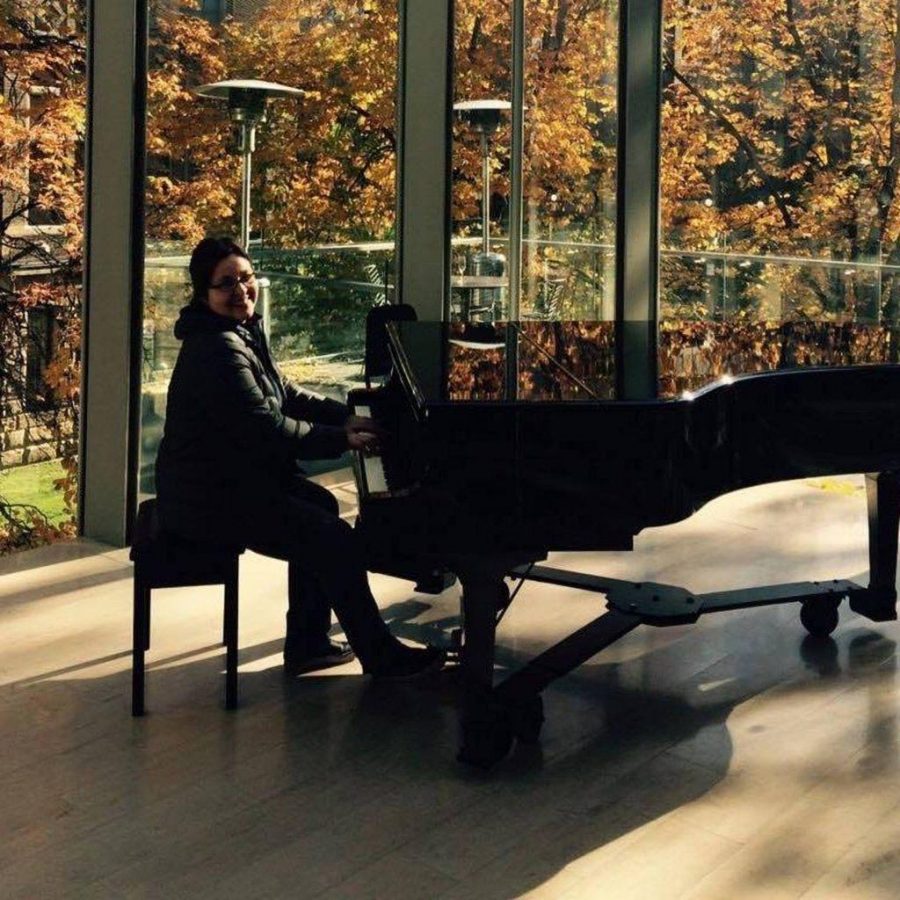Jelena Cingara fell in love with music through a friend. Her parents tell her that she used to listen with rapt attention at the age of five while her friend put on music shows consisting of ballet and piano. At age six, Cingara joined a music school for gifted children in Novi Sad, Serbia. From that moment on, her path was set. Music became an all-encompassing passion that drove her to pursue undergraduate, master’s and DMA programs. Her passion for music was unexpected considering her parents are scientists, but it has led her all over Canada and the United States, and continues to drive her to new heights.
“In my opinion, music is a complete and highest art form, which expresses what words fail to express,” Cingara said.
Cingara now teaches music as she tries to impart her own passion on young artists. Several of her students have been quite successful in national competitions. Cingara even teaches over Skype, although she misses “the one-on-one interaction with the student.” Teaching is important to her because “music is what everyone in the world needs today — a beautiful, pure, enlightened world full of kindness and enjoyment.”
Cingara found a home at the University of Utah. Her mentor and professor, Verdrana Subotic, is also from Eastern Europe — Yugoslavia. They bonded right away, and Cingara felt that Subotic really understood her. Cingara has a Bachelor of Arts in piano performance from the University of Toronto, a master’s degree in piano performance from the University of Toledo and a DMA in piano performance from the U.
Cingara feels that good practice is essential to success in a musical career.
“You always have to be your best self, which is hard for me … since sometimes I just want to relax and enjoy,” Cingara said.
That level of dedication can be exhausting at times, but it is worth it in the end to be a part of something bigger and more beautiful than just herself.
Precision, Cingara says, is the key to improvement.
“The most important part of a good practice is to try to do everything precisely and carefully: reading the notes, correct rhythms, dynamics, phrasing, technique,” Cingara said. “Then after you [do] all of this, you can put the expression and the emotions in.”
Technique makes something to listen to, but the emotion is what makes it into music for Cingara.
“Music is not to hear, it is to feel,” Cingara said.
This is evident in each of her performances — each note feels deliberate and full, as if every increment is important.
“You put all of yourself into your music and your art — it’s a part of you,” Cingara said. “Not all professions are like this.”
Currently, Cingara is working on a series of pieces by Johannes Brahms, but in the meantime, she offers this bit of advice to up-and-coming artists.
“Work hard, and don’t let anyone tell you that you can’t do or achieve something,” Cingara said.
You can learn more or schedule a lesson on her website: pianolessonstoronto.space/home/
m.slack@dailyutahchronicle.com
@slack_madge


